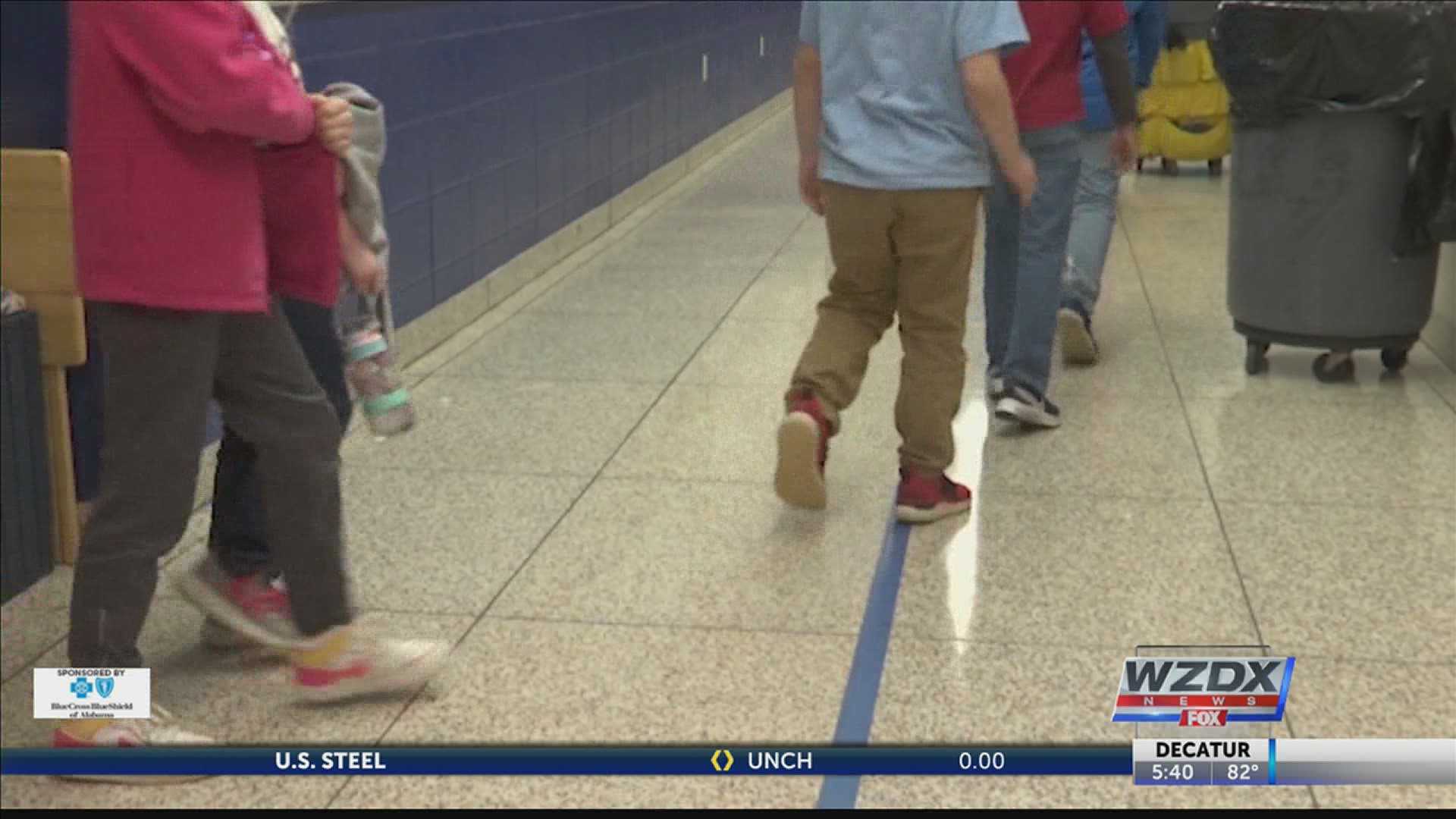HUNTSVILLE, Ala — We ask strangers all the time, "How are you?". But, when’s the last time you asked your family these questions-- particularly, your kids.
Some parents assume they know how their kids feel. Some think it’s not appropriate to talk to their young kids about topics like mental health.
Well, we’re getting rid of that stigma and telling you how to start the conversation on this week’s ‘Mental Health Monday’.
We met with James Desta, a Licensed Professional Counselor with Longwood Psychological Center in Huntsville. He tells us, “I’ve seen people as young as four. I’ve seen them as old as ninety-something.”
In young kids, feelings like anxiety or depression can be expressed differently. James Desta explains, “Because they don’t really have the words to express it, a lot of the time, what they’re feeling comes out physically.”
These feelings could be expressed with changes in behavior, refusal to follow instructions, feelings of anxiety can even be expressed as something like a stomach ache.
If you think you don’t need to talk to your kids about mental health, you’re wrong.
In 2018, suicide was already the second leading cause of death in young people ages 10-19. Though the changes haven’t been constant, we’ve seen increases in suicide attempts and ideation during the pandemic in young people.
James tells us, “If you’re feeling uncomfortable about having a conversation with your kid… If you are feeling as if there is a topic that is a little sensitive to approach with them, I’m just going to invite you to ask yourself, is that uneasiness because of how they’re going to react or because of your emotional experience? How often are we avoiding things because they’re going to make us uncomfortable and not necessarily because of how our kids will handle it?”
James Desta counsels people of all ages. But, he specializes in treating young people. He encourages parents of his clients to stop shying away from the conversation. The most important thing you can do is ask-- and then, listen.
Try starting with something like this:
James explains, “‘I want to let you know this is going to pass and it’s going to be okay. I’m right here for you and I’m right here with you. So, would it be okay to talk about that right now, what’s happening right now, or do you need to wait until a little bit later?’ See, even in that moment when they’re afraid, you’ve connected with ‘Hey, you’re afraid, I get it.’... You’re helping them feel understood and accepted, which is the connection part of this and then you’re offering them a choice even when there’s not one. You’re going to talk about this. But, it’s ‘Hey, do you want to do this right now, or later?’”
Local and national help is for people struggling with mental health issues or who may be contemplating suicide. If you’re thinking about suicide, are worried about a friend or loved one, or would like emotional support, help is available by phone, text, or chat.
National Suicide Prevention Hotline 800-273-8255 1-800-273-TALK
Free, confidential crisis counseling 24/7/365. You don’t have to be suicidal to call.
Nacional de Prevención del Suicidio 888-628-9454
Veterans Crisis Line 800-273-8255 or text 838255
Options for Deaf and Hard-of-Hearing 800-799-4889
Disaster Distress Helpline 800-985-5990 or text TalkWithUs to 66746
Crisis Services North Alabama 256-716-1000 or 1-800-691-8426
National Alliance on Mental Illness 800-950-NAMI or text NAMI to 741741
BoysTown National Hotline 800-448-3000 Spanish and 140 other languages available
BoysTown National Hotline TTD 800-448-1833
TrevorLifeline 866-488-7386 staffed 24/7
TrevorChat Click here for online instant messaging with a TrevorChat counselor, 7 days a week, 3pm-10pm EST
TrevorText Text TREVOR to 202-304-1200 7 days a week, 3pm-10pm EST
ImAlive.org 800-SUICIDE or Click here to Chat Now
Need help, information, or just someone to talk to? Here’s a list of resources that cater to LGBT+ youth.
The Trevor Project: Provides crisis intervention and suicide prevention services to LGBT+ youth.
24/7 phone help: 866-488-7386 Click here to text or chat with someone now.
National Suicide Prevention Hotline: 800-273-8255
Crisis Services North Alabama: If you need to find comfort, compassion and empathy, please call the HELPline 24 hours a day at 256-716-1000 or text 256-722-8219 from 4pm-11:30pm.
CARE Services, Inc.: CARE provides LGBTQ teen social and support groups for ages 14-19.
PFLAG Huntsville: PFLAG Huntsville‘s stated mission is to “serve families, friends, allies, and LGBTQ persons in the Hunstville area through education, support, and advocacy.” They host peer support meetings, socials, and other events.
It Gets Better Project: National organization to empower LGBTQ youth and their families. They also have a list of national and state-by-state resources.
GLSEN: The Gay Lesbian Straight Education Network works to train educators and staff about how they can create schools that are safe and free from bullying and harassment.

